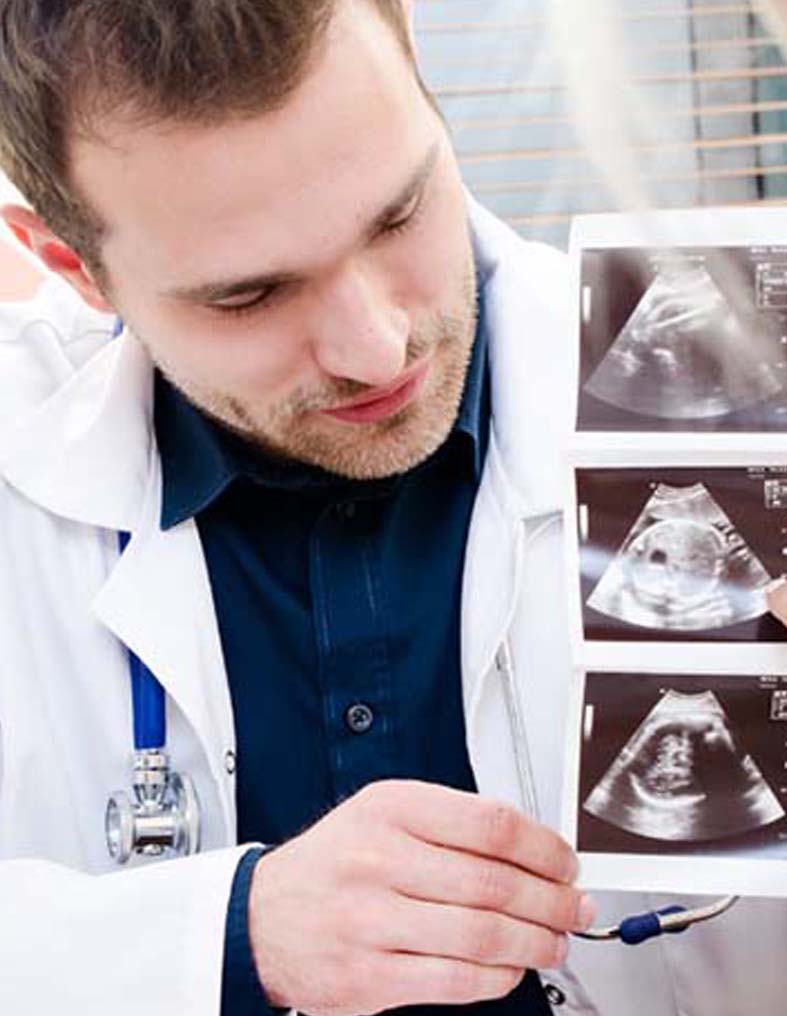
Why People Drink When They're Pregnant
Prenatal alcohol exposure can occur for various reasons. Some individuals may not realize they are pregnant or may lack clear information about the risks of alcohol use during pregnancy. Others may have an alcohol use disorder that makes it difficult to stay alcohol-free. By promoting understanding and compassion, we can better support families facing these challenges.

Many things may lead to someone having an alcohol-exposed pregnancy, including:
-
Not knowing they are pregnant.
Most people quit drinking when they find out they are pregnant.1 However, almost half of pregnancies are unplanned.2 Most people do not find out they are pregnant until 4 weeks or more into the pregnancy. They may drink alcohol during that time without knowing they are pregnant.
-
Not knowing the risks related to drinking during pregnancy.
Some people might not be aware of the effects that drinking during pregnancy can have. They may have heard incorrect information or no information at all.
-
Hearing incorrect information from a doctor.
Many doctors are not telling their patients that there is no known safe amount of alcohol during pregnancy.3 One reason for this is that they may not have been trained on how to have these conversations with patients; this can cause them to feel unprepared and uncomfortable.4 However, patients and their partners report wanting information on alcohol use during pregnancy. Health care providers must be ready and willing to provide it.
-
Knowing someone who drank during pregnancy and whose child has not been diagnosed with an FASD.
More than 1 in 7 pregnancies are exposed to alcohol.5 If someone has a friend who drank alcohol during pregnancy but their child does not have an FASD diagnosis, they might think that drinking alcohol during pregnancy is safe. They may then choose to drink throughout their own pregnancy. However, alcohol affects each pregnancy differently. Even twins with the same level of alcohol exposure can have different effects.6 There is no way to confirm how alcohol will affect a certain pregnancy. The safest choice is not to drink any alcohol during pregnancy.
-
Being part of a community where drinking is the norm.
Alcohol use is legal and generally acceptable in the United States. Even binge drinking is relatively common: 1 in 6 adults engage in binge drinking.7 Binge drinking during pregnancy can be especially dangerous for the fetus.8
-
Having an alcohol use disorder.
Nearly 5% of people in treatment for substance use are pregnant.9 For those who need extra support to have an alcohol-free pregnancy, resources are available. However, there may be barriers to using these services. One major barrier is the stigma and guilt surrounding alcohol use during pregnancy. Feeling ashamed or judged for their drinking can prevent people from seeking help and support.10
View sources
1 Hettema J, Cockrell S, Ingersoll K, et al. Missed Opportunities: Screening and Brief Intervention for Risky Alcohol Use in Women’s Health Settings. Journal of Women’s Health. 2015;24(8):648-654.
2 Guttmacher Institute. Unintended pregnancy in the United States.
3 Wilder Research. Alcohol Use and Pregnancy: The Beliefs and Behaviors of Minnesota Women. Published 2013.
4 Lepper L, King D, Doll J, Gonzalez S, Mitchell A, Hartje J. Partnering with the health professions to promote prevention of an alcohol-exposed pregnancy: Lessons learned from an academic-organizational collaborative. International Journal of Environmental Research and Public Health. 2019;16:1702.
5 Denny CH, et al. Consumption of alcohol beverages and binge drinking among pregnant women aged 18-44 years — United States, 2015-2017. Morbidity and Mortality Weekly Report (MMWR). 2019;68(16):365-368.
6 Hemingway SJA, Bledsoe JM, Davies JK, Brooks A, Jirikowic T, Olson EM, Thorne JC. Twin study confirms virtually identical prenatal alcohol exposures can lead to markedly different fetal alcohol spectrum disorder outcomes – fetal genetics influences fetal vulnerability. Adv Pediatr Res. 2019;5:23.
7 Centers for Disease Control and Prevention (CDC). Excessive alcohol use. https://www.cdc.gov/chronicdisease/resources/publications/factsheets/alcohol.htm
8 Roozen S, Peters G-JY, Kok G, et al. Systematic literature review on which maternal alcohol behaviours are related to fetal alcohol spectrum disorders (FASD). BMJ Open. 2018;8:e022578.
9 Substance Abuse and Mental Health Services Administration (SAMHSA). Table 2.10: Admissions aged 12 and older, by marital status, living arrangements, pregnancy status, and veteran status according to primary substance of abuse: 2010.https://archive.samhsa.gov/data/2k12/TEDS2010N/TEDS2010NTbl2.10.htm
10 Stone R. Pregnant women and substance use: Fear, stigma, and barriers to care. Health and Justice. 2015;3:2.
What can we help
you find today?
I want:
— or —
Get personalized help
Our FASD-informed Family Support Navigator team will connect you with the best navigator for your needs. We’ll reach out within one week to offer personalized, real-time help.

